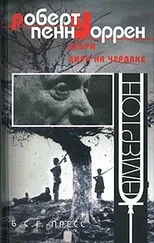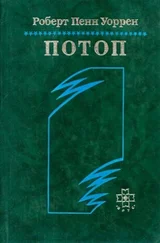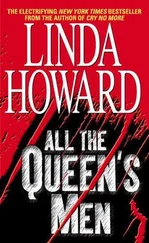Роберт Уоррен - All the king's men
Здесь есть возможность читать онлайн «Роберт Уоррен - All the king's men» весь текст электронной книги совершенно бесплатно (целиком полную версию без сокращений). В некоторых случаях можно слушать аудио, скачать через торрент в формате fb2 и присутствует краткое содержание. Жанр: Современная проза, на английском языке. Описание произведения, (предисловие) а так же отзывы посетителей доступны на портале библиотеки ЛибКат.
- Название:All the king's men
- Автор:
- Жанр:
- Год:неизвестен
- ISBN:нет данных
- Рейтинг книги:4 / 5. Голосов: 1
-
Избранное:Добавить в избранное
- Отзывы:
-
Ваша оценка:
- 80
- 1
- 2
- 3
- 4
- 5
All the king's men: краткое содержание, описание и аннотация
Предлагаем к чтению аннотацию, описание, краткое содержание или предисловие (зависит от того, что написал сам автор книги «All the king's men»). Если вы не нашли необходимую информацию о книге — напишите в комментариях, мы постараемся отыскать её.
All the king's men — читать онлайн бесплатно полную книгу (весь текст) целиком
Ниже представлен текст книги, разбитый по страницам. Система сохранения места последней прочитанной страницы, позволяет с удобством читать онлайн бесплатно книгу «All the king's men», без необходимости каждый раз заново искать на чём Вы остановились. Поставьте закладку, и сможете в любой момент перейти на страницу, на которой закончили чтение.
Интервал:
Закладка:
"I was," she said, "until–until she looked at me like that."
"You know why you got that price for her?" Cass asked, and without waiting for an answer, went on, "Because she's yellow and comely and well-made. Oh, the drovers wouldn't take her down chained in a coffle. They wouldn't wear her down. They'll take her down the river soft. And you know why?"
"Yes, I know why," she said, "and what is it to you? Are you so charmed by her?"
"That is unfair," Cass said.
"Oh, I see, Mr. Mastern," she said, "oh, I see, you are concerned for the honor of a black coachman. It is a very delicate sentiment, Mr. Mastern. Why–" and she came to stand above him as he still sat on the bench–"why did you not show some such delicate concern for the honor of your friend? Who is now dead."
According to the journal, there was, at this moment, "a tempest of feeling" in his breast. He wrote: "Thus I heard put into words for the first time the accusation which has ever in all climes been that most calculated to make wince a man of proper nurture or natural rectitude. What the hardened man can bear to hear from the still small voice within, may yet be when spoken by any external tongue an accusation dire enough to drain his very cheeks of blood. But it was not only that accusation in itself, for in very truth I had supped full of that horror and made it my long familiar. It was not merely the betrayal of my friend. It was not merely the death of my friend, at whose breast I had leveled the weapon. I could have managed somewhat to live with those facts. But I suddenly felt that the world outside of me was shifting and the substance of things, and that the process had only begun of a general disintegration of which I was the center. At that moment of perturbation, when the cold sweat broke on my brow, I did not frame any sentence distinctly to my mind. But I have looked back and wrestled to know the truth. It was not the fact that a slave woman was being sold away from the house where she had had protection and kindness and away from the arms of her husband into debauchery. I knew that such things had happened in fact, and I was no child for after my arrival in Lexington and my acquaintance with the looser sort of companions, the sportsmen and the followers of the races, I had myself enjoyed such diversions. It was not only the fact that the woman for whom I had sacrificed my friend's life and my honor could, in her own suffering, turn on me with a cold rage and the language of insult so that I did not recognize her. It was, instead, the fact that all of these things–the death of my friend, the betrayal of Phebe, the suffering and rage and great change of the woman I had loved–all had come from my single act of sin and perfidy, as the boughs from the bole and the leaves from the bough. Or to figure the matter differently, it was as though the vibration set up in the whole fabric of the world by my act had spread infinitely and with ever increasing power and no man could know the end. I did not put it into words in such fashion, but I stood there shaken by a tempest of feeling."
When Cass had somewhat controlled his agitation, he said, "To whom did you sell the girl?"
"What's it to you?" she answered.
"To whom did you sell the girl?" he repeated.
"I'll not tell you," she said.
"I will find out," he said. "I will go to Paducah and find out."
She grasped him by the arm, driving her fingers deep into the flesh, "like talons," and demanded, "Why–why are you going?"
"To find her," he said. "To find her and buy her and set her free." He had not premeditated this. He heard the words, he wrote in the journal, and knew that that was his intention. "To find her and buy her and set her free," he said, and felt the grasp on his arm released and then in the dark suddenly felt the rake of her nails down his cheek, and heard her voice in a kind of "wild sibilance" saying, "If you do–if you do–oh, I'll not abide it– I will not!"
She flung herself from his side and to the bench. He heard her gasp and sob, "a hard dry sob like a man's." He did not move. Then he heard her voice, "If you do–if you do–she looked at me that way, and I'll nor abide it–if you do–" Then after a pause, very quietly, "If you do, I shall never see you again."
He made no reply. He stood there for some minutes, he did not know how long, then left the summerhouse, where she still sat, and walked down the alley.
The next morning he left for Paducah. He learned the name of the trader, but he also learned that the trader had sold Phebe (a yellow wench who answered to Phebe's description) to a "private party" who happened to be in Paducah at the time but who had gone on downriver. His name was unknown in Paducah. The trader had presumably sold Phebe so that he would be free to accompany his coffle when it had been made up. He had now headed, it was said, into South Kentucky, with a few bucks and wenches, to pick up more. As Cass had predicted, he had not wanted to wear Phebe down by taking her in the coffle. So getting a good figure of profit in Paducah, he had sold her there. Cass went south as far as Bowling Green, but lost track of his man there. So rather hopelessly, he wrote a letter to the trader, in care of the market at New Orleans, asking for the name of the purchaser and any information about him. Then swung back north to Lexington.
At Lexington he went down to West Short Street, to the Lewis C. Robards barracoon, which Mr. Robards had converted from the old Lexington Theatre a few years earlier. He had a notion that Mr. Robards, the leading trader of the section, might be able, through his downriver connections, to locate Phebe, if enough of a commission was in sight. At the barracoon there was no one in the office except a boy, who said that Mr. Robards was downriver but that Mr. Simms was "holding things down" and was over at the "house" at an "inspection." So Cass went next door to the house (When Jack Burden was in Lexington investigating the life of Cass Mastern, he saw the "house" still standing, a two-story brick building of the traditional residential type, roof running lengthwise, door in center of front, window on each side, chimney at each end, lean-to in back. Robards had kept his "choice stock" there and not in the coops, to wait for "inspection.")
Cass found the main door unlocked at the house, entered the hall, saw no one, but heard laughter from above. He mounted the stairs and discovered, at the end of the hall, a small group of men gathered at an open door. He recognized a couple of them, young hangers-on he had seen about town and at the track. He approached and asked if Mr. Simms was about. "Inside," one of them said, "showing." Over the heads, Cass could see into the room. First he saw a short, strongly made man, a varnished-looking man, with black hair, black neckcloth, large bright black eyes, and black coat, with a crop in his hand. Cass knew immediately that he was a French "speculator," who was buying "fancies" for Louisiana. The Frenchman was staring at something beyond Cass's range of vision. Cass moved farther and could see within.
There he saw the man whom he took to be Mr. Simms, a nondescript fellow in a plug hat, and beyond him the figure of a woman. She was a very young woman, some twenty years old perhaps, rater slender, with skin slightly darker than ivory, probably an octoroon, and hair crisp rather than kinky, and deep dark liquid eyes, slightly bloodshot, which stared at a spot above and beyond the Frenchman. She did not wear the ordinary plaid Osnaburg and kerchief of the female slave up for sale, but a white, loosely cut dress, with elbow-length sleeves, and skirts to the floor and no kerchief, only a band to her hair. Beyond her, in the neatly furnished room ("quite genteel," the journal called it, while noting the barred windows), Cass saw a rocking chair and a little table, and on the table a sewing basket with a piece of fancy needlework lying there with the needle stuck in it, "as though some respectable young lady or householder had dropped it casually aside upon rising to greet a guest." Cass recorded that somehow he found himself staring at the needlework.
Читать дальшеИнтервал:
Закладка:
Похожие книги на «All the king's men»
Представляем Вашему вниманию похожие книги на «All the king's men» списком для выбора. Мы отобрали схожую по названию и смыслу литературу в надежде предоставить читателям больше вариантов отыскать новые, интересные, ещё непрочитанные произведения.
Обсуждение, отзывы о книге «All the king's men» и просто собственные мнения читателей. Оставьте ваши комментарии, напишите, что Вы думаете о произведении, его смысле или главных героях. Укажите что конкретно понравилось, а что нет, и почему Вы так считаете.





![Роберт Уоррен - Рассказы [Компиляция]](/books/419993/robert-uorren-rasskazy-kompilyaciya-thumb.webp)


